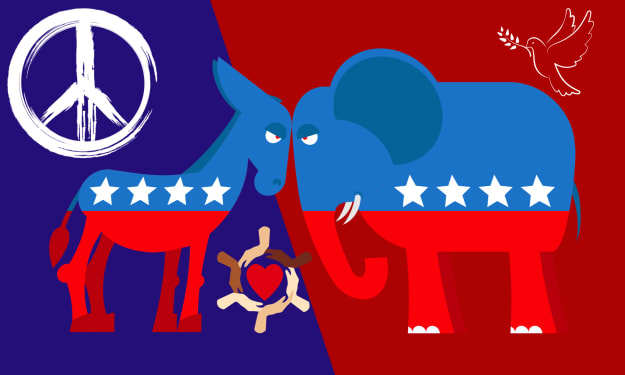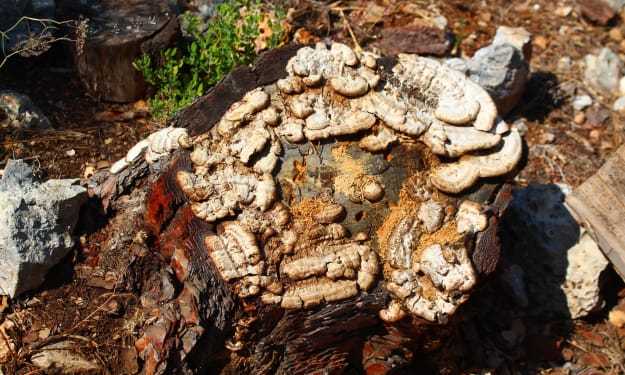agriculture
Tackling food waste, research and global debates about agricultural sustainability and how to feed our population while still saving some for later.


The Artistic Investment
Having a quarter in her pocket and enduring horse power, Louisi Ana confronted domineering attitudes plaguing a southern bayou metropolis.
Marc OBrienPublished about a month ago in The Swamp

Unveiling the Underworld
Sewage fungus, an unpleasant topic yet a crucial aspect of wastewater treatment, unveils a complex world that many wish to remain ignorant of. This organism, typically a type of filamentous fungi, thrives in the nutrient-rich environment of sewage systems, presenting challenges in maintaining effective wastewater treatment processes. Understanding sewage fungus involves delving into its characteristics, impact on the environment, and the measures taken to control its growth.
Ekemini EssienPublished 2 months ago in The Swamp

Varieties of Roses in India: Key Features
Roses are the eternal symbols of love and beauty in the colourful tapestry that is the Indian floriculture industry. These flowers are known for their attractive fragrance and beautiful petals, which have made them a national favourite. In this blog, we will talk about the magical world of various types of roses in India and their diversity while revealing some peculiarities that make every type a botanical work of art.
Rakesh RanaPublished 2 months ago in The SwampEverything Donald Trump Accomplished as President of the United States
Donald Trump's presidency was a tumultuous era in American politics, marked by a myriad of accomplishments and controversies. From his successful business ventures to his unconventional political ascent, Trump's presidency left a significant impact on the nation. Let's delve into the various aspects of his tenure and evaluate the accomplishments that defined his time in office.
Timothy A RowlandPublished 4 months ago in The SwampWhy, When, and How was the Republican Party Formed in the United States
Introduction The birth of the Republican Party stands as a monumental moment in American political history. Understanding its roots involves delving into the rich tapestry of the nation's past and the fervent ideological undercurrents that shaped its inception.
Timothy A RowlandPublished 4 months ago in The Swamp

Political Standings Not Withstanding
A Message of Unity in Modern Political Division Across the United States, the country is divided by political views and beliefs. The level of division that currently exists in 2023, in fact, has not been seen in many decades, maybe even centuries. It could be argued that the USA has not been this divided since the days leading up to the civil war.
Timothy A RowlandPublished 4 months ago in The Swamp

Colorado Removes Trump from Ballad
For those who may have missed the news, a story was reported on by Newsmax telling how the state of Colorado has removed Donald Trump from the ballot for the 2024 Presidential election1. Not surprising since only 40% or so of the state is Republican. At least for now. This may increase that number.
Timothy A RowlandPublished 4 months ago in The SwampYOUTUBE
**YouTube: A Journey from Inception to Global Dominance** YouTube, the behemoth of online video streaming, has come a long way since its humble beginnings. Established in February 2005 by three former PayPal employees—Chad Hurley, Steve Chen, and Jawed Karim—YouTube has evolved into a cultural phenomenon that has reshaped the way we consume and share content.
Whispers of the Forest
In the heart of an ancient forest, where the sunlight filtered through the canopy in dappled patterns, there existed a world of quiet resilience. Every tree, every creature, seemed to hum a song of survival—a symphony of nature's endurance that echoed through the ages.
Joel JosephPublished 7 months ago in The Swamp

Iconic Sycamore Gap Tree at Hadrian's Wall Felled by Vandals
The notable tree at the famous viewpoint of Sycamore Gap next to Hadrian’s wall in Northumberland supposedly disappeared unexpectedly.
Esther AnimaPublished 7 months ago in The Swamp

Thomas Sankara - African Leader
In the annals of history, the name Thomas Sankara shines as a beacon of visionary leadership and unwavering dedication to transformative change. Born on December 21, 1949, this Burkinabé military captain, Marxist revolutionary, and pan-Africanist theorist left an indelible mark during his presidency from 1983 to 1987. Often hailed as "Africa's Che Guevara," Sankara's accomplishments over a mere four years are a testament to his commitment to social equity, self-reliance, and a brighter future for Burkina Faso.


BLACK ROCK(INFLUENCE AND POWER)
INFLUENCE AND POWER In 2010, Ralph Schlosstein, the CEO of Evercore Partners and a BlackRock founder, called BlackRock "the most influential financial institution in the world."[20]


















